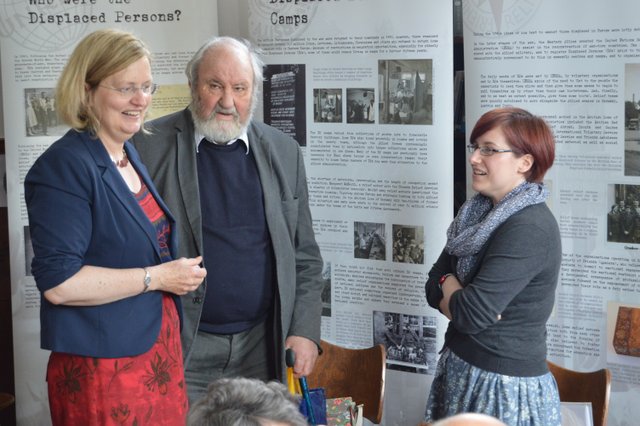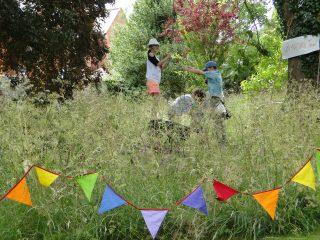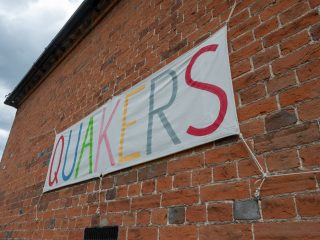About 18 months ago, I stumbled across a brilliant exhibition put together by Notts and Manchester Universities, called When the War Was Over, telling the story of what happened to the 11.5 million refugees that were left at the end of WWII.

The fact that 8th May 2015 marked both the 70th anniversary of VE Day and the start of Christian Aid week made it the perfect opportunity to bring the exhibition to Amersham Meeting House. We were able, too, to display some of the private papers of a former Slough Friend (now deceased) who was serving with the FAU in Europe at the end of the War and worked with refugees in the camps.
The exhibition highlighted some shocking facts. Many of the 11.5 M refugees were housed initially in the same camps where they had been held prisoner. Of those who could not return to their countries of origin, some had still not been re-homed fifteen years after the end of the War. And despite the knowledge of the horrors they had faced, some of the language used to describe them in the popular press was as ugly as it is today.
I always planned to do more than just provide a static exhibition. On Sunday 10th May, following Meeting for Worship and a shared lunch, we had a talk from one of the researchers behind the exhibition. And to bring things up to date, and to remind people that many of the same problems persist today, we had the premiere performance of the latest production from the Write to Life Group of Freedom from Torture, entitled the A-Z of Poverty.
This was part-filmed, part live performance, describing in moving glimpses what life is like for refugees and asylum seekers in Britain today.
The three members of the group who came to give the live performance spoke of the poverty, social isolation, depression and fear generated by a system that seems designed to keep them in a never-ending limbo of uncertainty.
I’d always hoped the two parts of this event would complement each other, but they meshed together even better than I could possibly have hoped. There were some amazing emotional highlights, but two things in particular have stayed with me.
One was the final words of one of the young asylum seekers from Freedom from Torture. “The hardest thing is when you begin a conversation with someone, and then you tell them you are an asylum seeker and they turn away from you. Please, please, do not close your doors to us.”
The second was an overheard comment from a young member of the audience, who said on the way out, “That’s really opened my eyes.”



Leave a Reply
You must be logged in to post a comment.